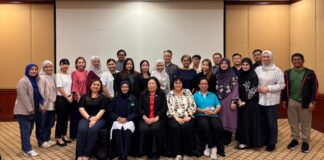By Remy Majangkim
KOTA KINABALU: Perikatan Nasional and prominent homeowner associations in Malaya have expressed opposition to the proposed Urban Renewal Bill 2025.
The legislation seeks to facilitate the redevelopment of ageing buildings; however, critics argue that it would grant excessive authority to the Ministry.
Perikatan Nasional has specifically raised concerns about the potential for unchecked power consolidation, which could lead to decision-making processes that disregard local needs and inputs.
Homeowner groups, meanwhile, worry that the bill’s ambiguous wording could give property developers free rein, paving the way for residents to be uprooted and cherished neighbourhoods to lose their identity, all without fair compensation or meaningful dialogue.
A central issue is whether the proposed legislation would be implemented uniformly throughout Malaysia, including the states of Sabah and Sarawak (eventually). Certain Perikatan Nasional Members of Parliament (MPs) have criticised Borneo MPs for withholding support for the initiative.
The Borneo position is unique, as it involves autonomy and maintaining control over local development priorities. Specifically,
Article 2(a) of the Federal Constitution, along with Articles 95B and 95D, delineates the legislative boundaries between federal and state authorities, ensuring a degree of self-governance for these regions.
Malaysian courts have interpreted these provisions to emphasise that parliamentary power cannot impinge or override the established autonomy of Sabah and Sarawak, reinforcing the legal constraints on the federal government.
The Proposed Urban Renewal Bill 2025 is a federal bill. Sabah has its own authority under the Local Government Ordinance 1961, which provides specific guidelines for local governance and development, allowing for more autonomous decision-making.
For instance, the Ordinance empowers local councils to approve or reject development projects based on comprehensive assessments that include community impact evaluations. This framework ensures that local priorities and needs are taken into account, thereby limiting the reach of federal intervention. Consequently, the federal government cannot override these existing laws.
In light of this, the Proposed Urban Renewal Bill 2025 should not touch the distinctive self-governance and autonomy that Sabah and Sarawak fiercely protect.
The federal government must honour the careful balance of power forged at Malaysia’s founding, respecting Sabah and Sarawak’s rightful control over their lands and building regulations.


